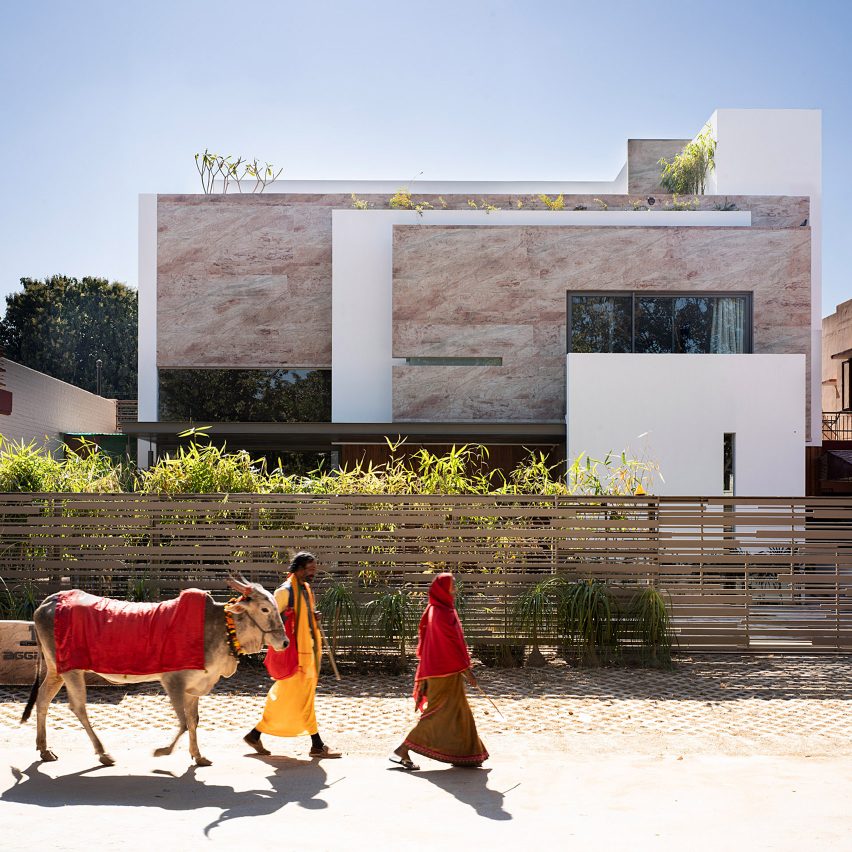
Living spaces at this house in the Indian city of Chandigarh are distributed around a full-height courtyard that allows natural light and breezes to reach rooms arranged around its perimeter.
Locally based architecture studio Charged Voids designed Residence 145 project for a family comprising three generations, who wanted a home that provides a balance of communal and private spaces.
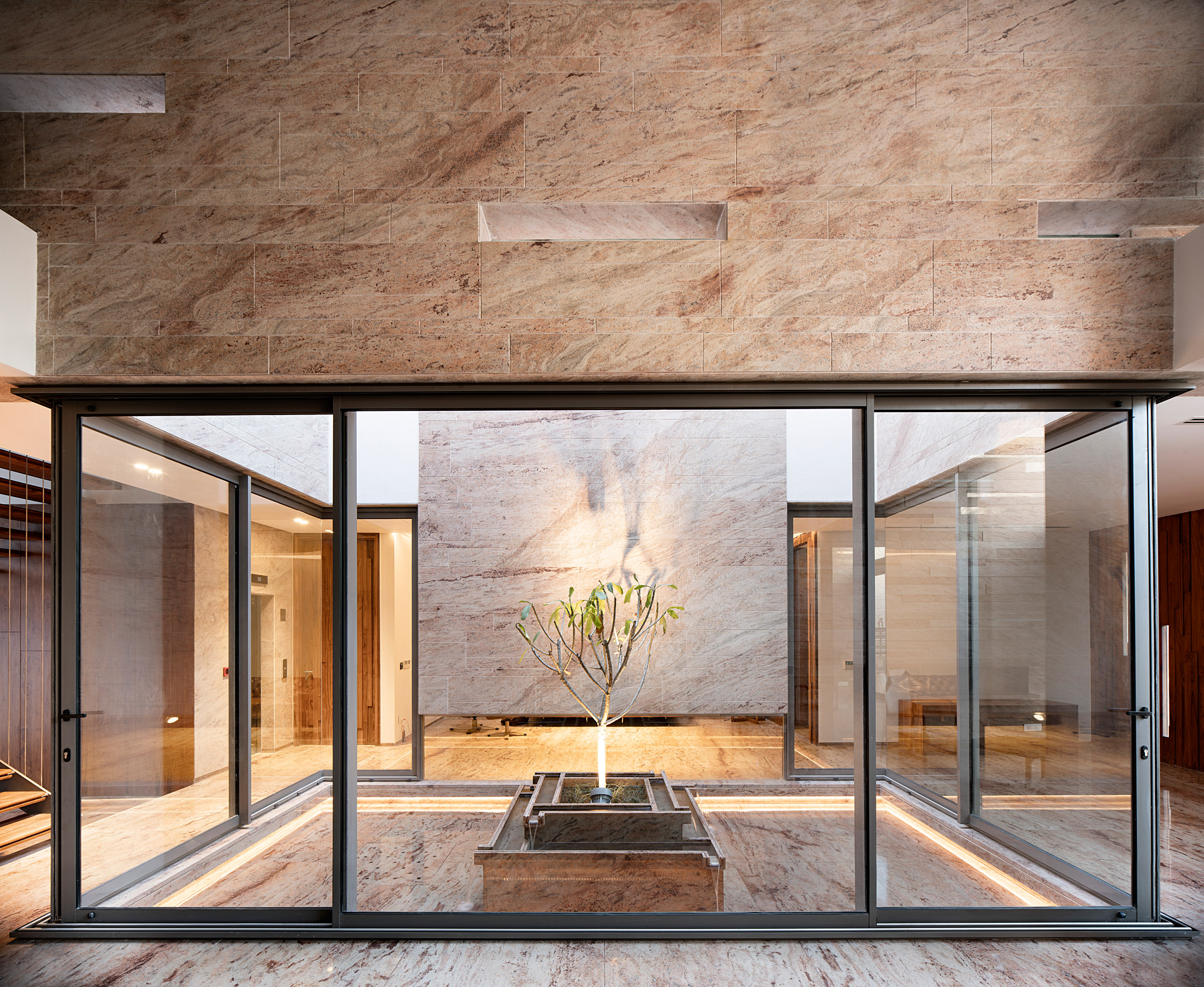
The property is located in the city's southern sector and occupies a site that was subject to prohibitive zoning and height restrictions.
From the street, the building appears as a composition of monolithic interlocking volumes finished in white render or clad in a locally available stone with an earthy hue.
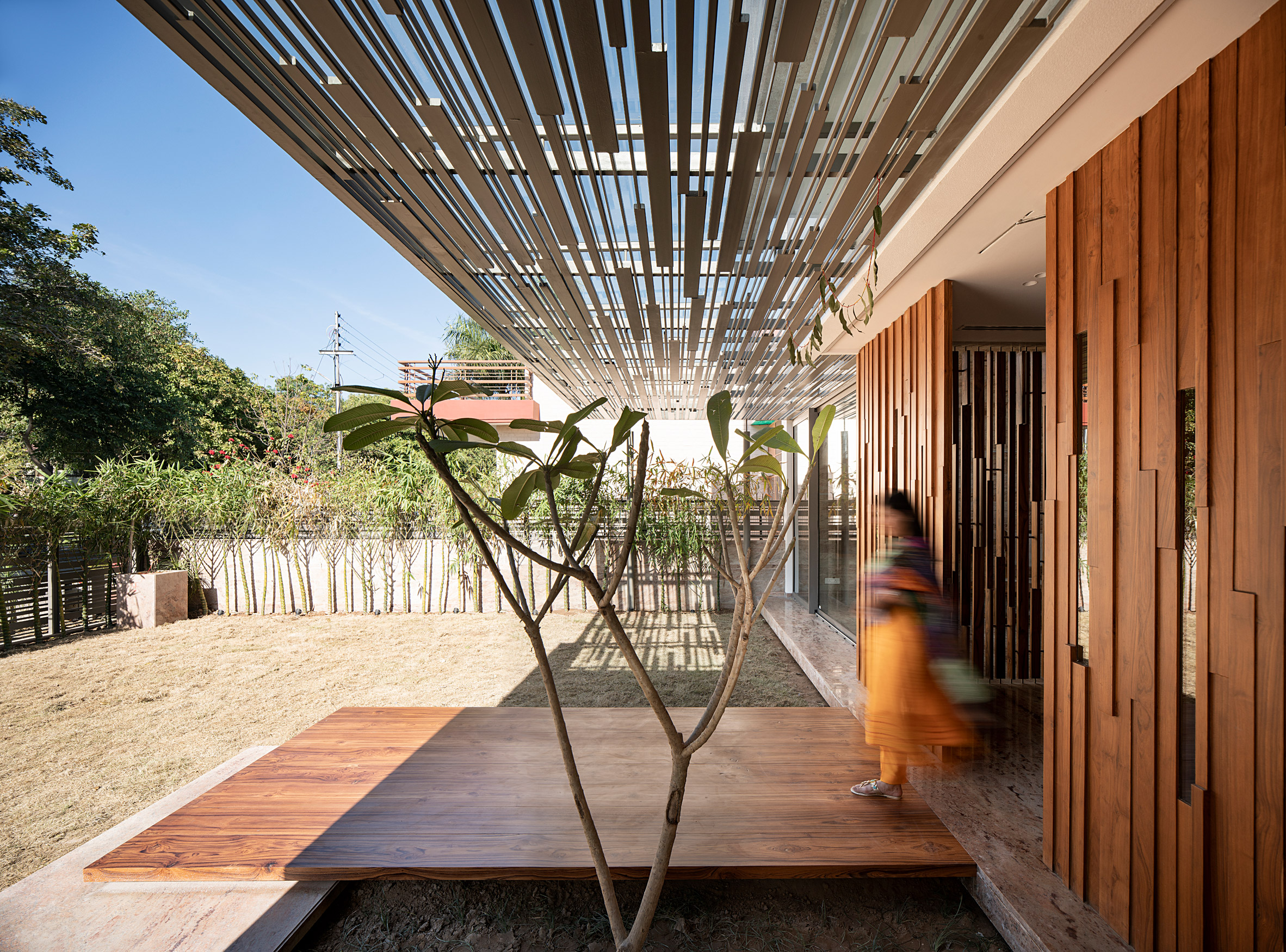
Internally, the three-storey house comprises a range of spaces that progress from the completely open communal areas on the ground floor to more private rooms for members of the family and staff on the upper levels.
"The central idea was to create a sequential progression from the public to private zones by using the courtyard and vertical circulation as the divider between the two," said Charged Voids.
"Also, the varied volumetric scales of the public and private zones and their different interactions with the exterior was an essential part of the idea."
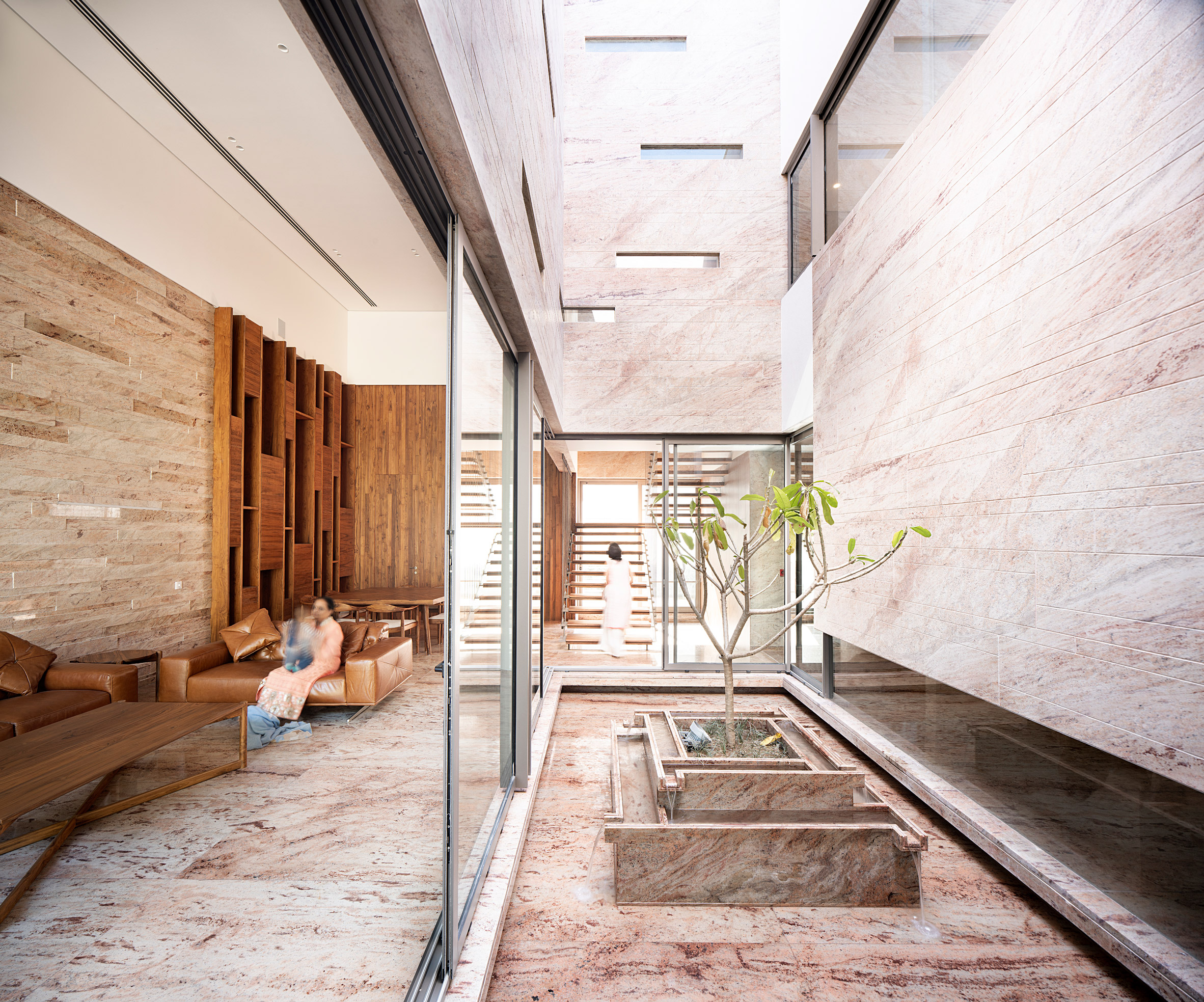
An entrance sheltered beneath a slatted canopy leads into an open shared space that wraps around a courtyard containing a tree and water feature.
Sliding glass doors can be retracted to incorporate this open-air void into the room, providing an enhanced connection to the sound of water and scent of the planting.
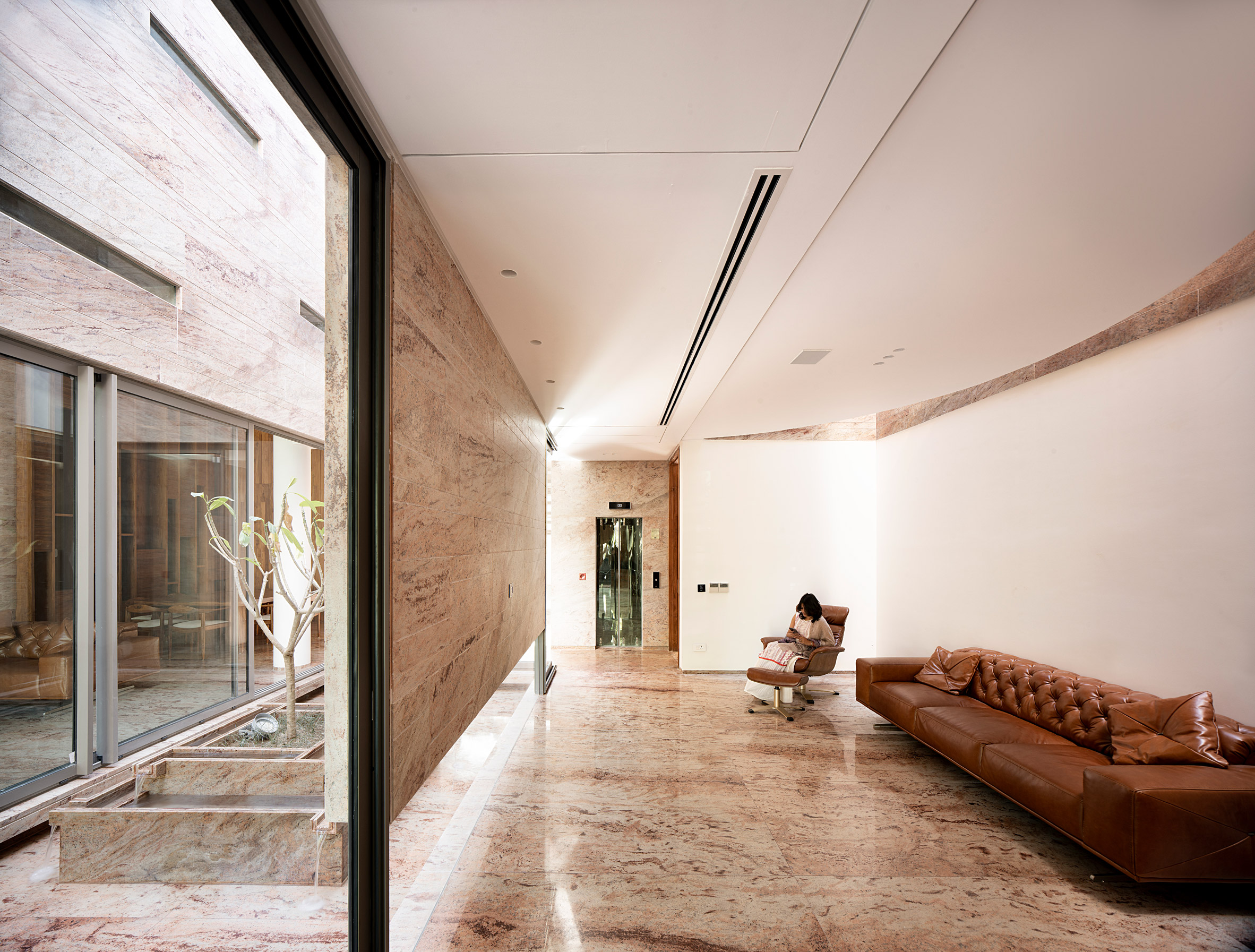
As well as helping to separate the public and private zones, the full-height void serves to funnel natural light and breezes down into the centre of the building.
The sitting room and double-height dining area are joined on the ground floor by two bedrooms for the older generations of the family.
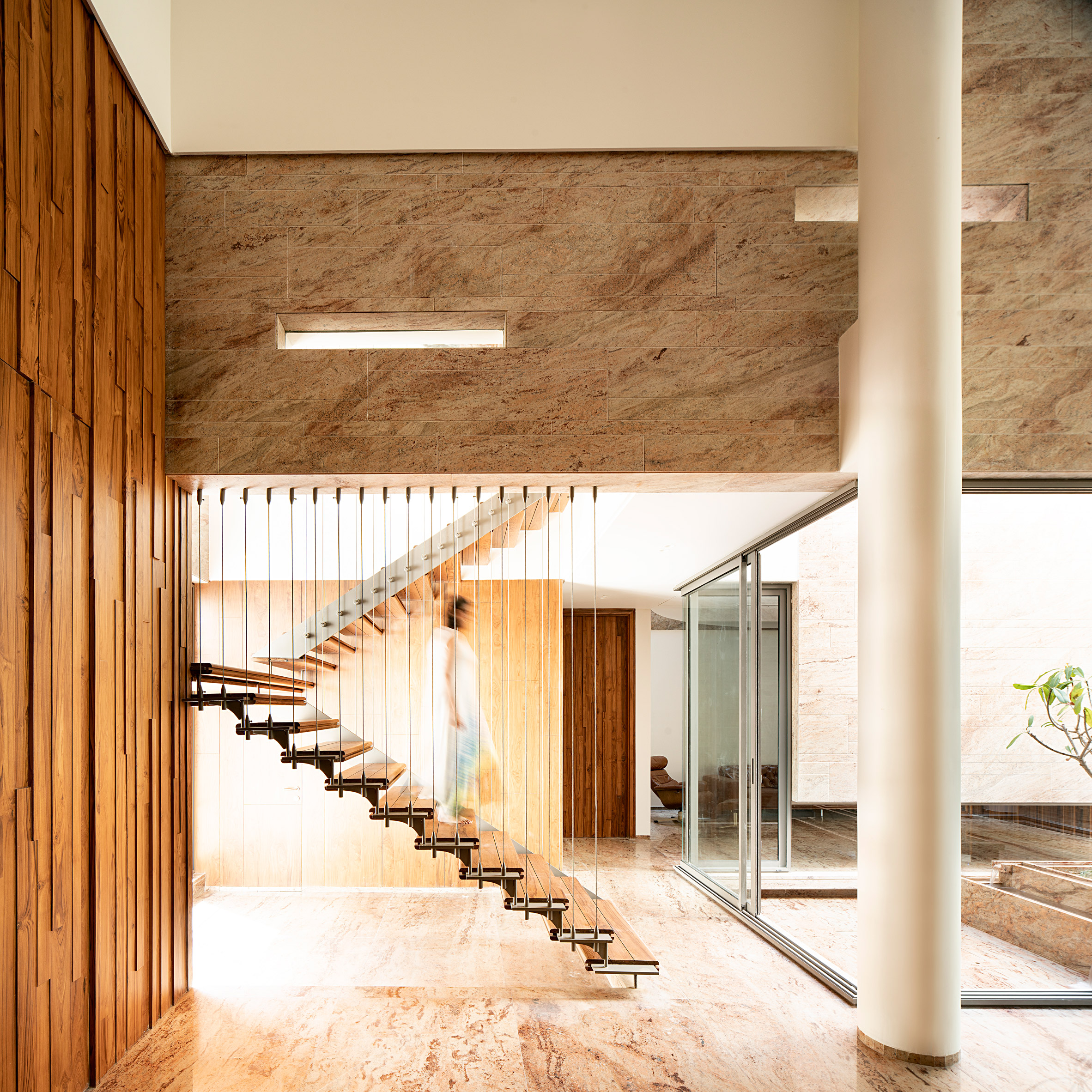
A lowered section of the wall enclosing the courtyard emphasises the separation of these private spaces from the main communal areas on the opposite side.
A staircase with open treads towards the rear of the building ascends to a first floor containing two further bedrooms, along with a kitchen that overlooks the courtyard.
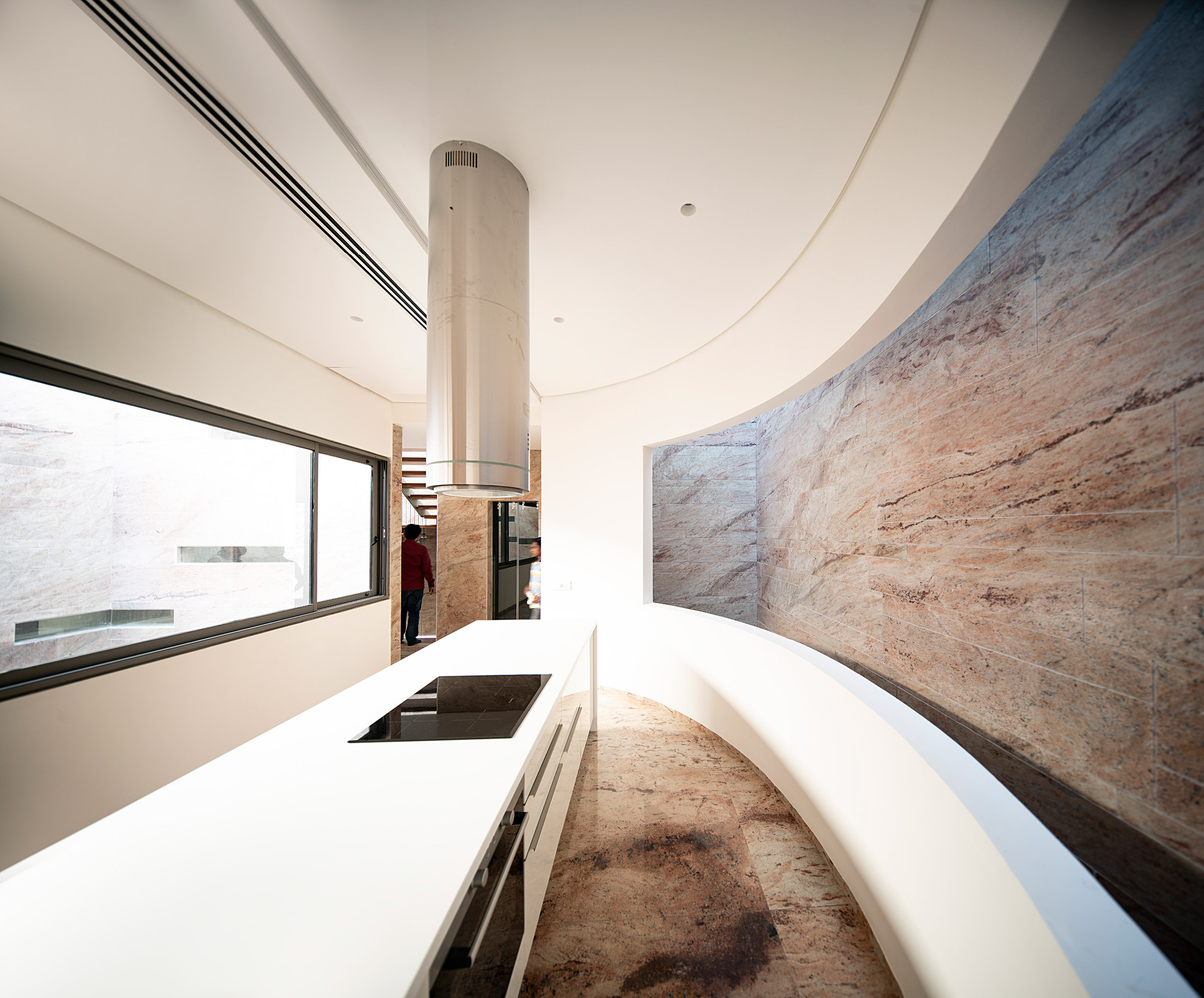
The open kitchen features a curved wall which is punctured by a large opening. This hole frames a view of the adjacent stone surface and allows additional daylight to filter down from roof lights.
The stairs continue up to a third storey that provides access to a large roof terrace containing a bar and other amenities for hosting gatherings, which was an important aspect of the brief.
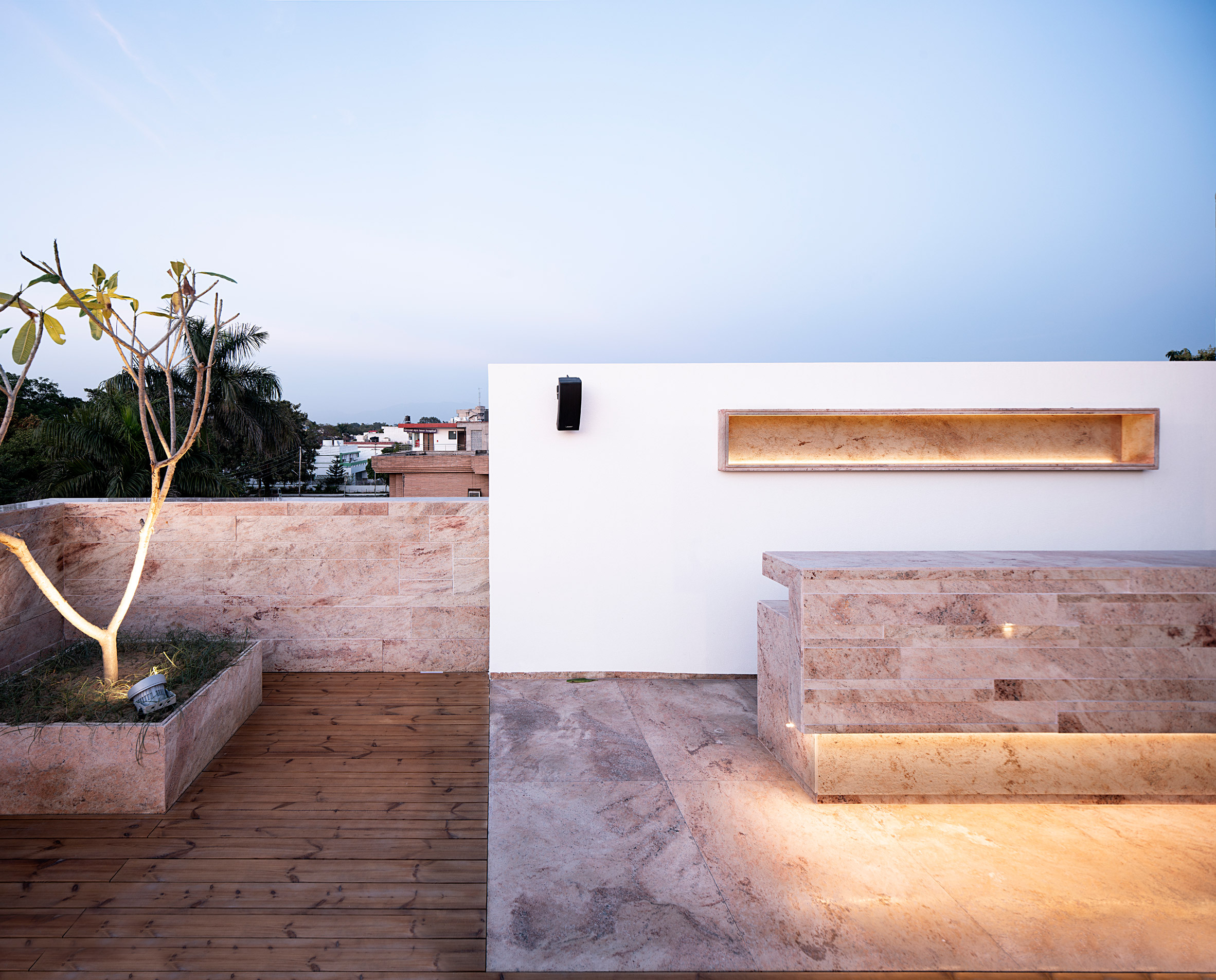
This level also provides accommodation for the domestic help, which can be accessed independently using a dedicated staircase at the front of the property.
The same stone used for the external walls is applied throughout the interior for walls and flooring. The material was chosen for its warm and natural appearance, which is complemented by leather furniture and richly coloured timber joinery.
In addition to its regular residential work, Charged Voids' previous projects include an award-winning bridal store in Chandigarh that focuses on traditional craftsmanship and materials.
Photography is by Javier Callejas.
Project credits:
Lead architect: Aman Aggarwal
Design team: Swati Agarwal, Dushyant Singh
3D visualizer: Haneet Khanna
Builder: Khullar Builders
Structure consultant: Pankaj Chopra
The post Charged Voids builds stone-clad Chandigarh home around courtyard void appeared first on Dezeen.
http://bit.ly/2HHRIMx
twitter.com/3novicesindia
No comments:
Post a Comment